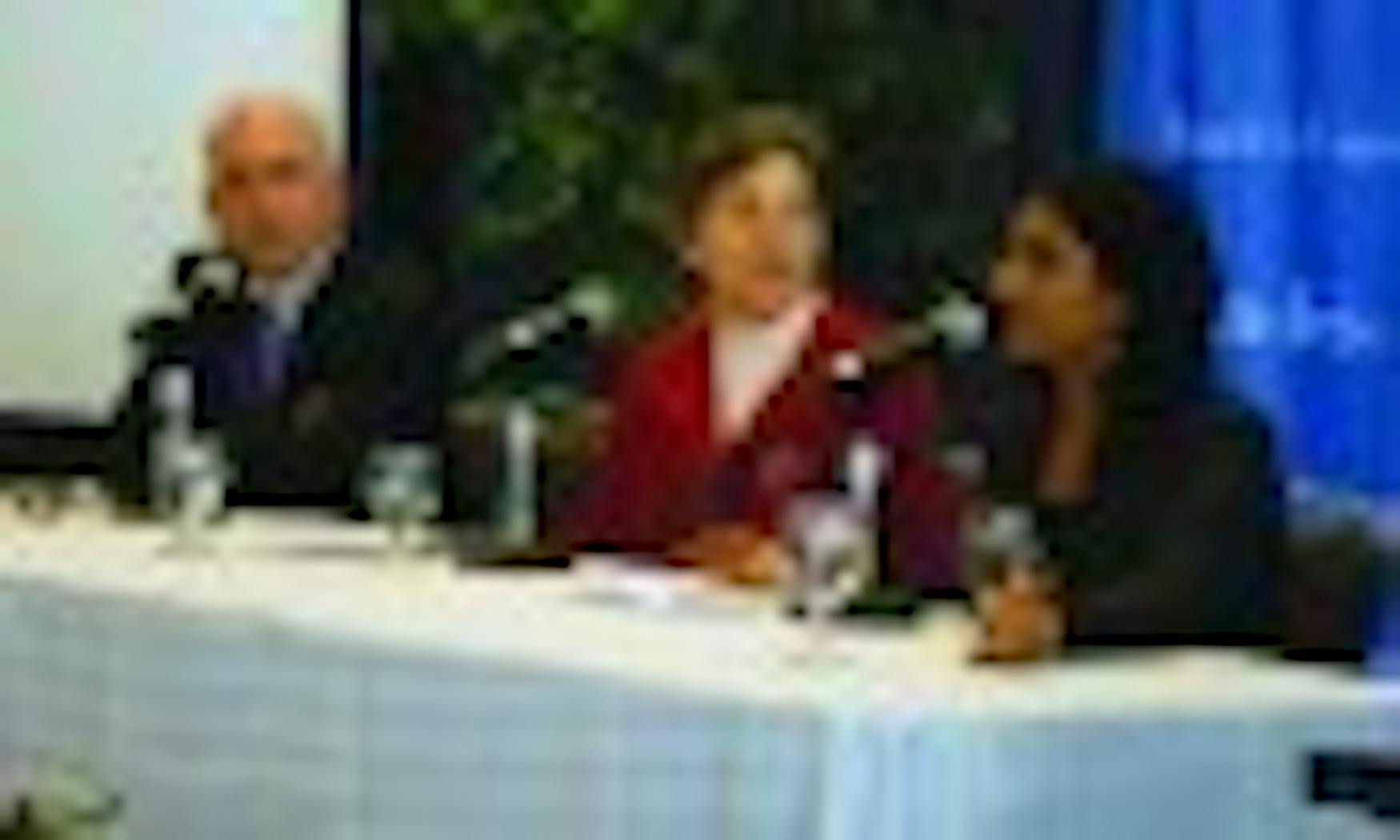Symposia discuss inaugural themes
Symposia featuring four discussion panels were held last Monday and Tuesday on various topics as part of University President Frederick Lawrence's inauguration week.The goal of the symposia, according to Provost Marty Krauss, was to "identify issues facing liberal arts universities that have a global presence and to analyze how those issues are dealt with at Brandeis."
Day 1: Monday
The first panel, titled "The Business of the University and the University as a Business: Issues of Work, Money, and Power and the Liberal Arts University," included panelists Profs. Benjamin Gomes-Casseres (IBS) and Jane Kamensky (HIST), as well as Daniel Terris, vice president for Global Affairs.
Profs. Gregory Petsko (BCHM), Robin Feuer Miller (GRALL) and Joseph Wardwell (FA) made up a second panel titled "Sciences, the Creative Instinct, and the Liberal Arts."
In addition to participating in the discussion, each panelist also wrote a short essay summarizing his or her opinions and thoughts on the topics that they discussed. Essays were posted on the Brandeis website and are available for anyone to view.
In his opening statement, Terris talked about his extensive experience with Lockheed Martin, the world's largest defense contractor. Terris explained that at every location he visited around the country, the corporation had put into place an extensive series of conversations at every level and that all 150,000 of its employees were involved in the conversation of ethics, values and decisionmaking.
It is interactions such as these that Terris believes would be useful in a university as well as a business setting.
"The sense of engagement was really quite dramatic. . You had that sense of constant engagement in 'what is it we are all about,'" said Terris, whose essay was titled "Putting Business to Work."
Kamensky praised Brandeis for the atmosphere that it creates for students and the significance of the close, personal interactions that occur between students and faculty members.
"As the sector of higher education shakes out, the value of the face-to-face ... is something that needs to be articulated again and again," said Kamensky.
In the second panel, which focused on the importance of both the arts and humanities in addition to the sciences,
Petsko emphasized the inseparability of the schools and the importance of including both schools in one's knowledge base.
Day 2: Tuesday
Social justice is defined as helping the "underdog" or the "oppressed," explained Michael Sandel '75, the Anne T. and Robert M. Bass professor of government at Harvard University and member of the Board of Trustees, as the moderator of Tuesday's symposium.
The first panel, titled "Diverse Communities and Liberal Arts," consisted of Profs. Ulka Anjaria (ENG), Bernadette Brooten (NEJS) and Fernando Rosenberg (ROMS).
The second panel, called "Human Values, Global Challenges and the Liberal Arts," was comprised of Profs. David Cunningham (SOC), Theodore Johnson (Heller) and Kathleen Moran (PHIL). Sandel moderated both panels.
Anjaria noted a dual threat to liberal arts institutions in today's economy.
Liberal arts academies are threatened "from outside the academy, where we are constantly being asked to justify ourselves-how practical are we, how much are we going to ensure our students economic success in a climate of uncertainty," said Anjaria.
Additionally, Anjaria said that liberal arts institutions are squeezed "from inside the academy as we use financial language to justify professionalizing ourselves, making ourselves more marketable."
Brooten said that the University should reutilize existing resources to better teach languages to prepare students for "global leadership."
This includes the use of language tables, guest lecturers in foreign languages, open office hours with faculty in foreign languages, use of multiple languages in research papers, support of language faculty and a central-language website.
Rosenberg addressed the role that diversity should play at Brandeis.
"It is by making sure that our community of students, faculty, administrators and trustees is increasingly more diverse in every possible way that we can envision a future in which Brandeis will continue to thrive and be an exciting place that contributes something unique to the world," said Rosenberg.
However, Rosenberg said that diversity is not based solely on ethnic backgrounds and that it includes socioeconomic, linguistic and cultural diversities.
The second panel focused on the role of social justice at a global liberal arts university.
Moran said that as humans, we must "think of the conditions other people live in and understand the options and choices people have and are faced with."
Johnson suggested that a process of "deliberative dialogue" could lead to the "discovery of social justice" and the "elusive concept of coexistence."
One of the final speakers, Cunningham, noted the connection between scholarship, social and political activism and the debate about the "appropriateness of the connection between scholarship and activism, scholarship and politics, [and] facts and values.



Please note All comments are eligible for publication in The Justice.